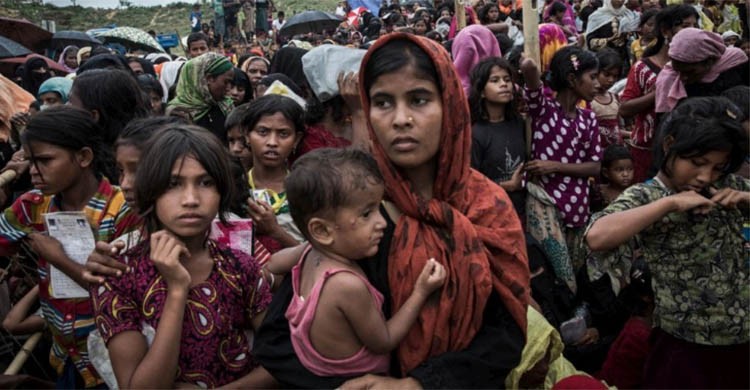Five years of forced displacement of Rohingyas to Bangladesh
26 August 2022, 06:38 pm | Updated: 21 April 2025, 06:36 am

The protracted Rohingya crisis has stepped on the sixth year on Thursday without a single Rohingya repatriated to their homeland.
Prime Minister Sheikh Hasina saved the world from a humane catastrophe in 2017 by sheltering these persecuted people.
Bangladesh has been carrying the load in terms of providing humanitarian assistance and the environment and societal imbalance in the areas where Rohingyas live, said a press release of Foreign Affairs Ministry, reports BSS.
If the crisis is not resolved quickly, it may create a security problem for the region and beyond. The Bangladesh government is trying its best to ensure early repatriation of the displaced Rohingyas.
Return to their homeland is also the aspiration of the displaced Rohingya population. They are receiving education, food, shelter, health care and other services in Bangladesh.
They participate in skill development activities to enhance their livelihood opportunities in Rakhine once they return. The Rohingya crisis is not a bilateral issue. Its origin and solution lies in Myanmar.
Bangladesh tried to arrange safe, sustainable and voluntary repatriation of the Rohingya to Rakhine State through negotiations with Myanmar following the bilateral instruments.
Unfortunately, not a single Rohingya could return to Myanmar yet for the non-committal attitude of Myanmar towards their obligation enshrined to the bilateral mechanisms.
Due to the frustrating development on the bilateral front in commencing the repatriation, Bangladesh involves friendly countries to assist their repatriation.
Starting their safe, sustainable, voluntary repatriation to their homeland Rakhine State as early as possible should be a priority through dialogue and discussion.
The international community should focus on creating a safe and conducive situation on the ground in northern Rakhine and the smooth conduct of repatriation and reintegration to the Myanmar society for the Rohingyas.
On this very day in 2017, in the true spirit of responsibility and burden sharing, they should make concerted efforts to resolve the Rohingya crisis in all its dimensions.
Ensuring accountability of the perpetrators of the atrocities committed is needed to be supported with the view to create confidence among the Rohingyas for repatriation.
The UN and the partners must undertake tangible actions and projects to create a conducive environment with safety and security.
ASEAN can take the lead role in such engagements. The presence of ASEAN and international actors in the Rakhine state can help to reduce the trust deficit between Rohingya and Nay Pyi Taw and help confidence building that is essential for smooth repatriation.






















